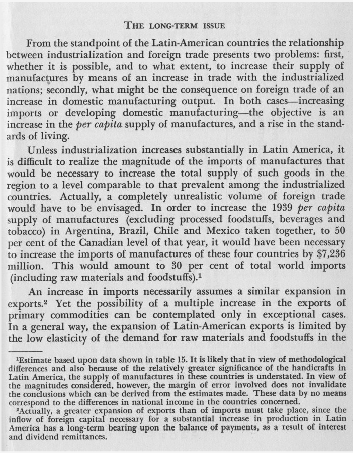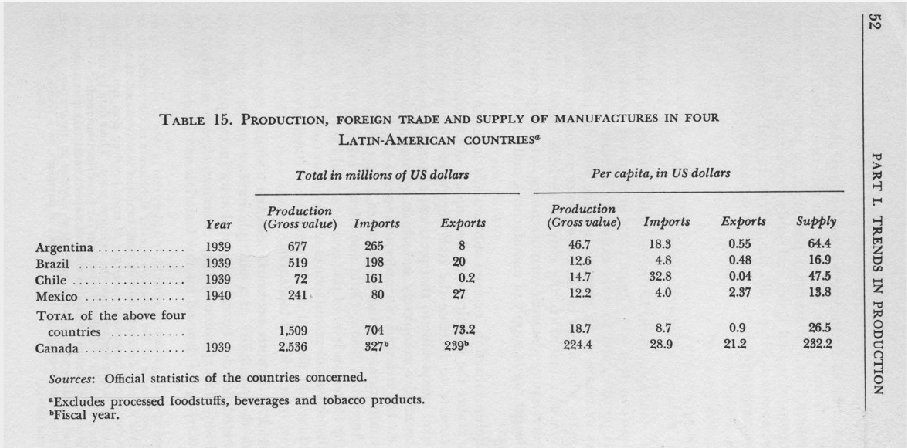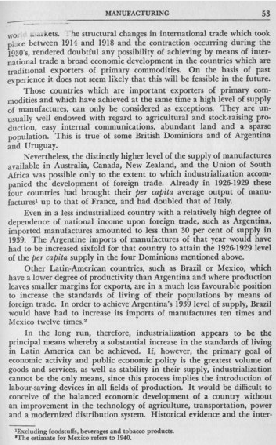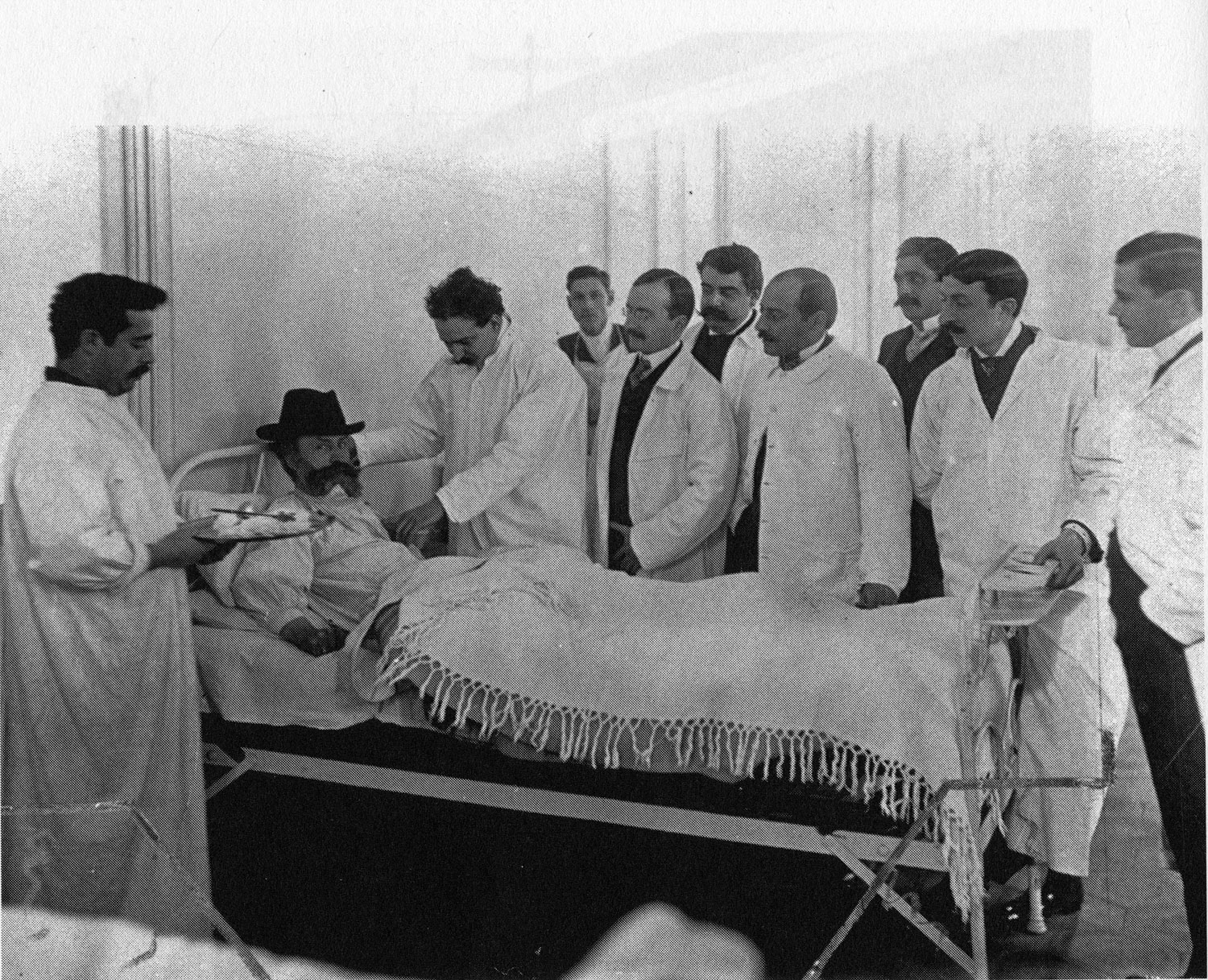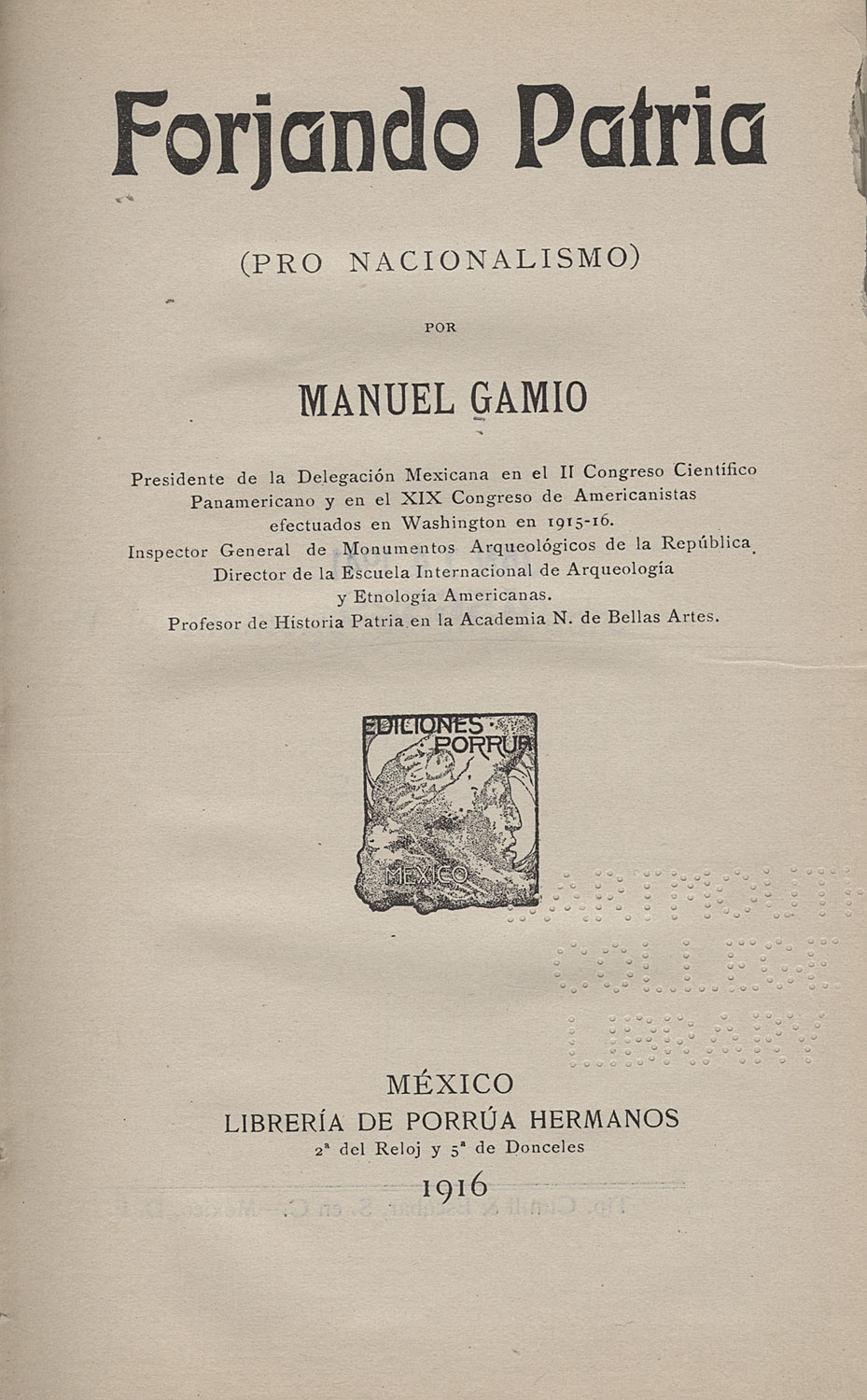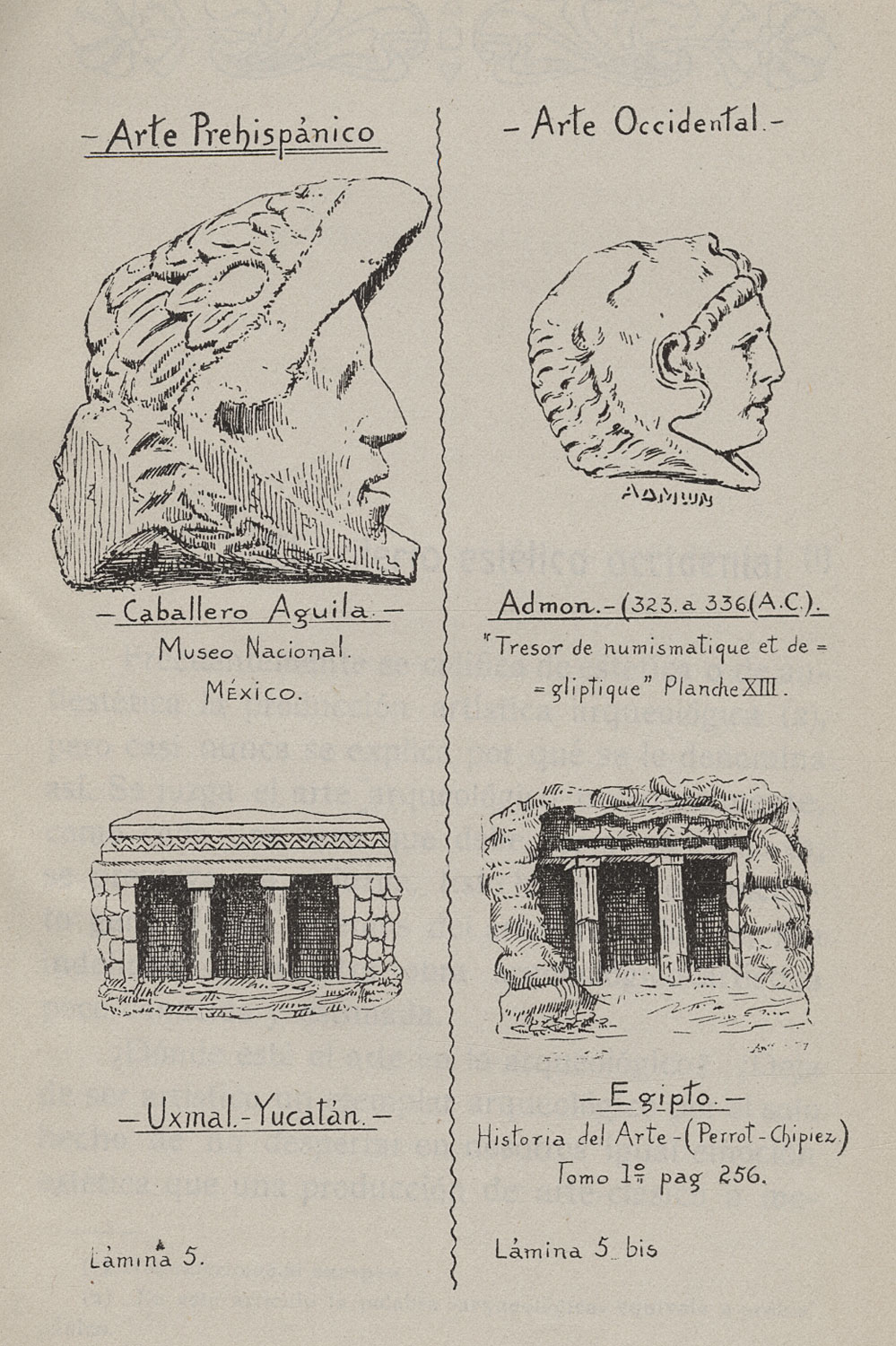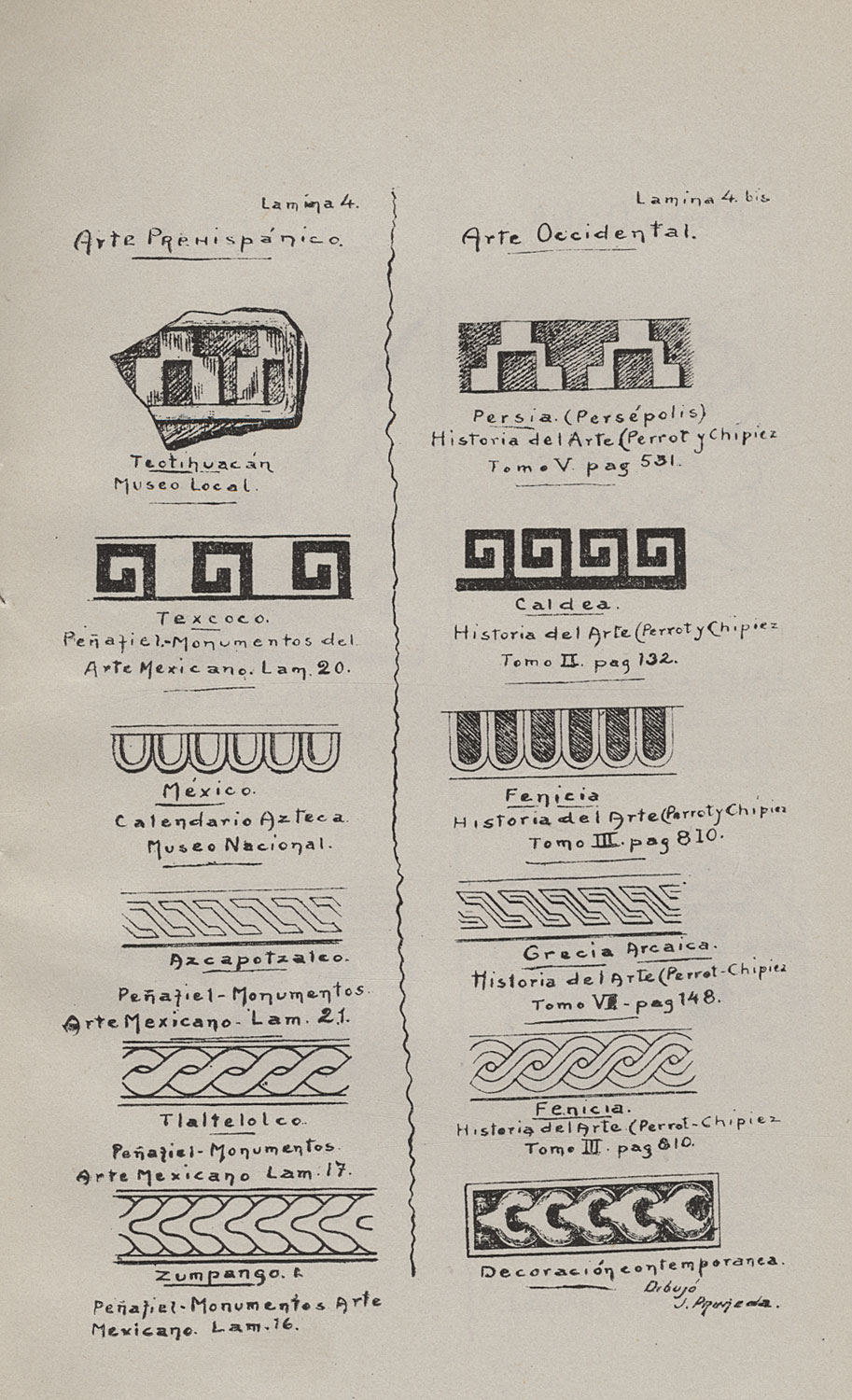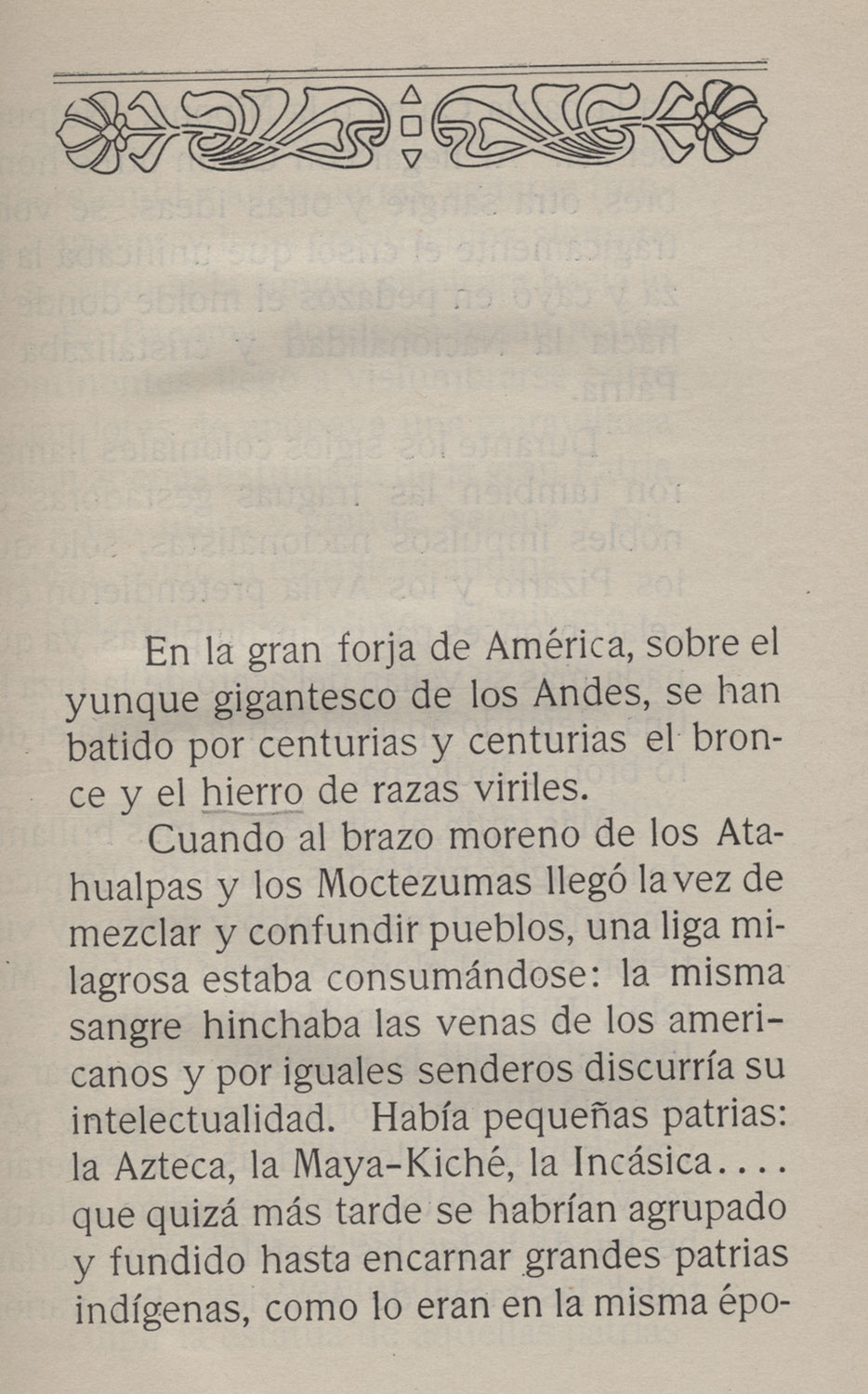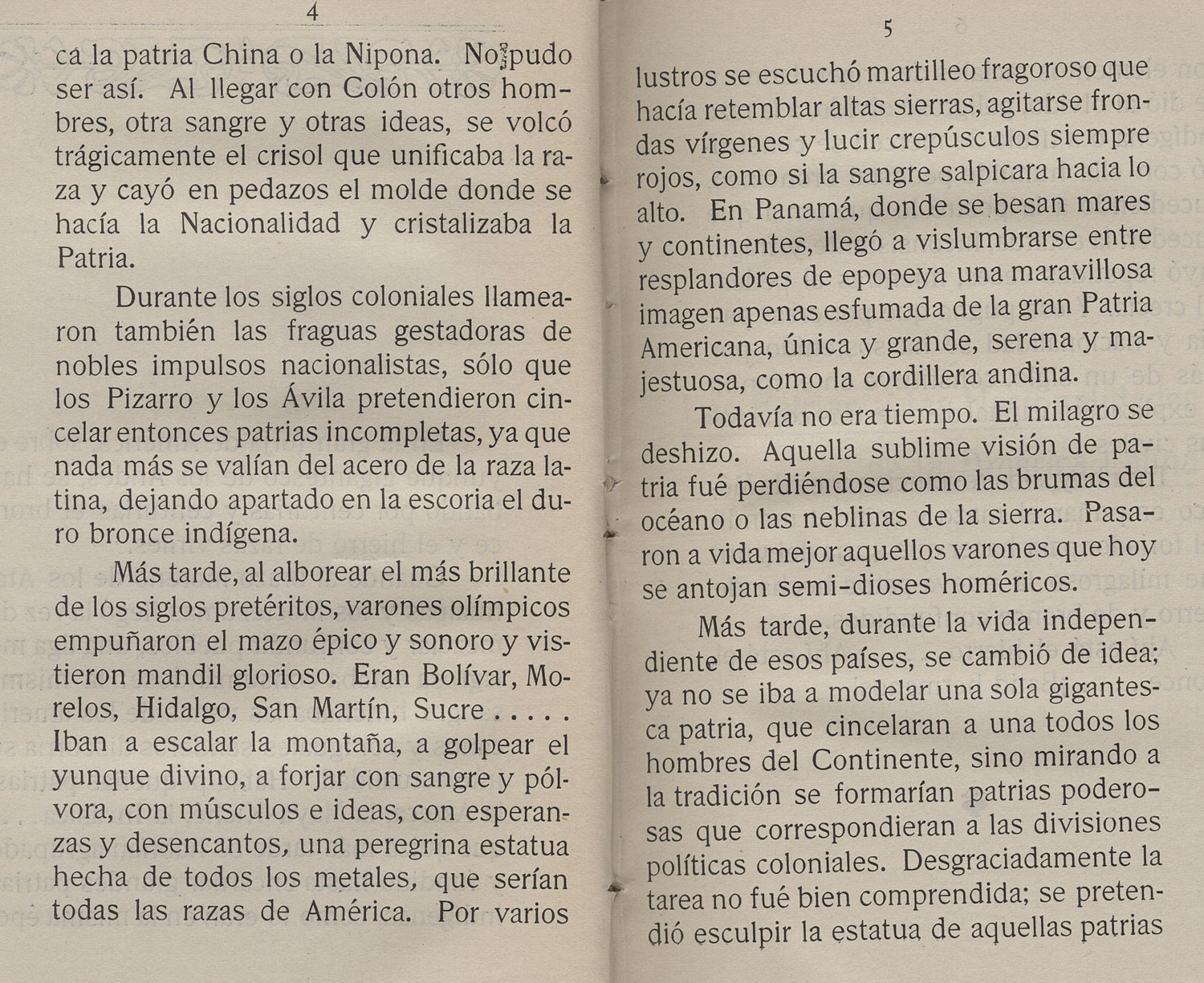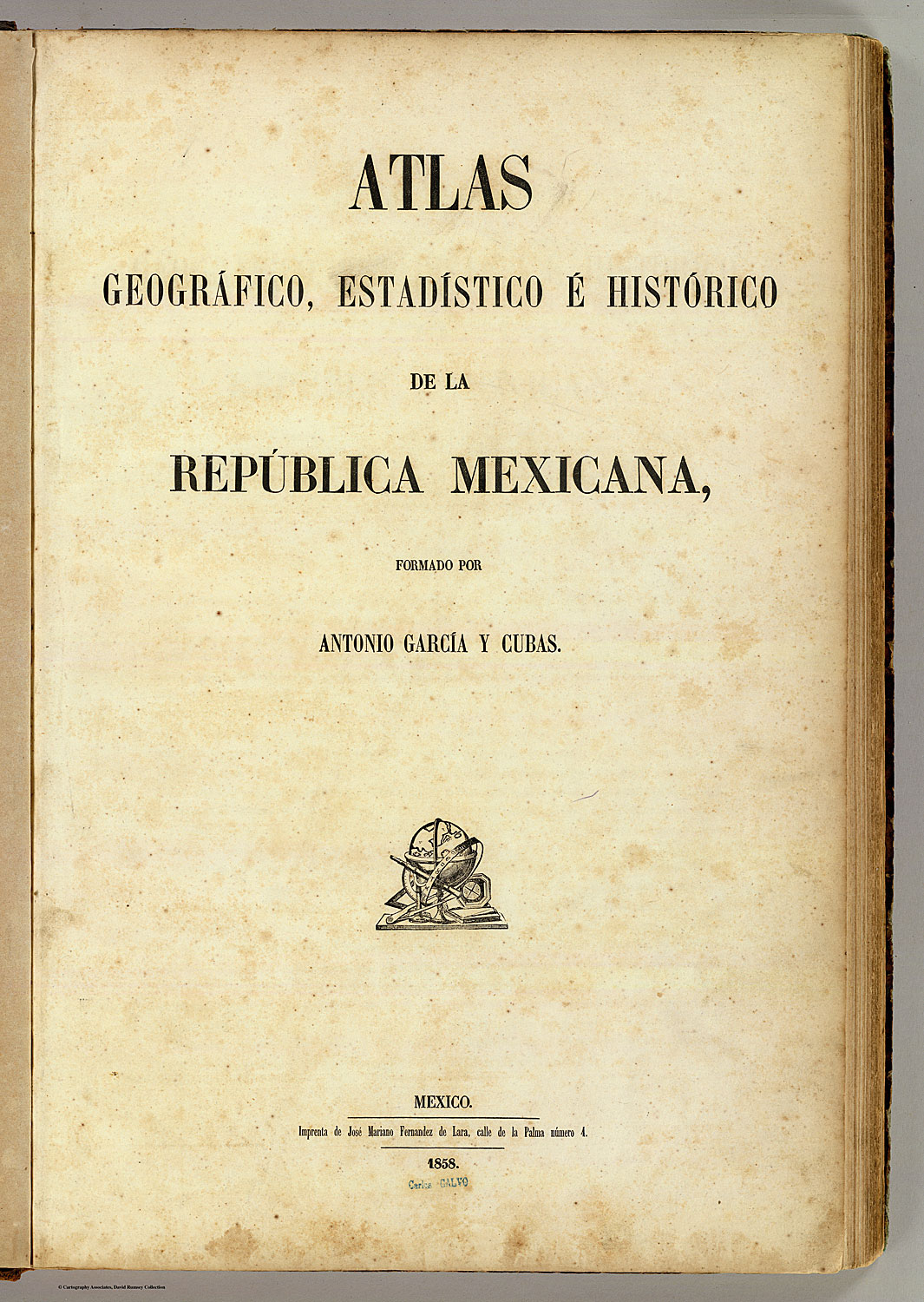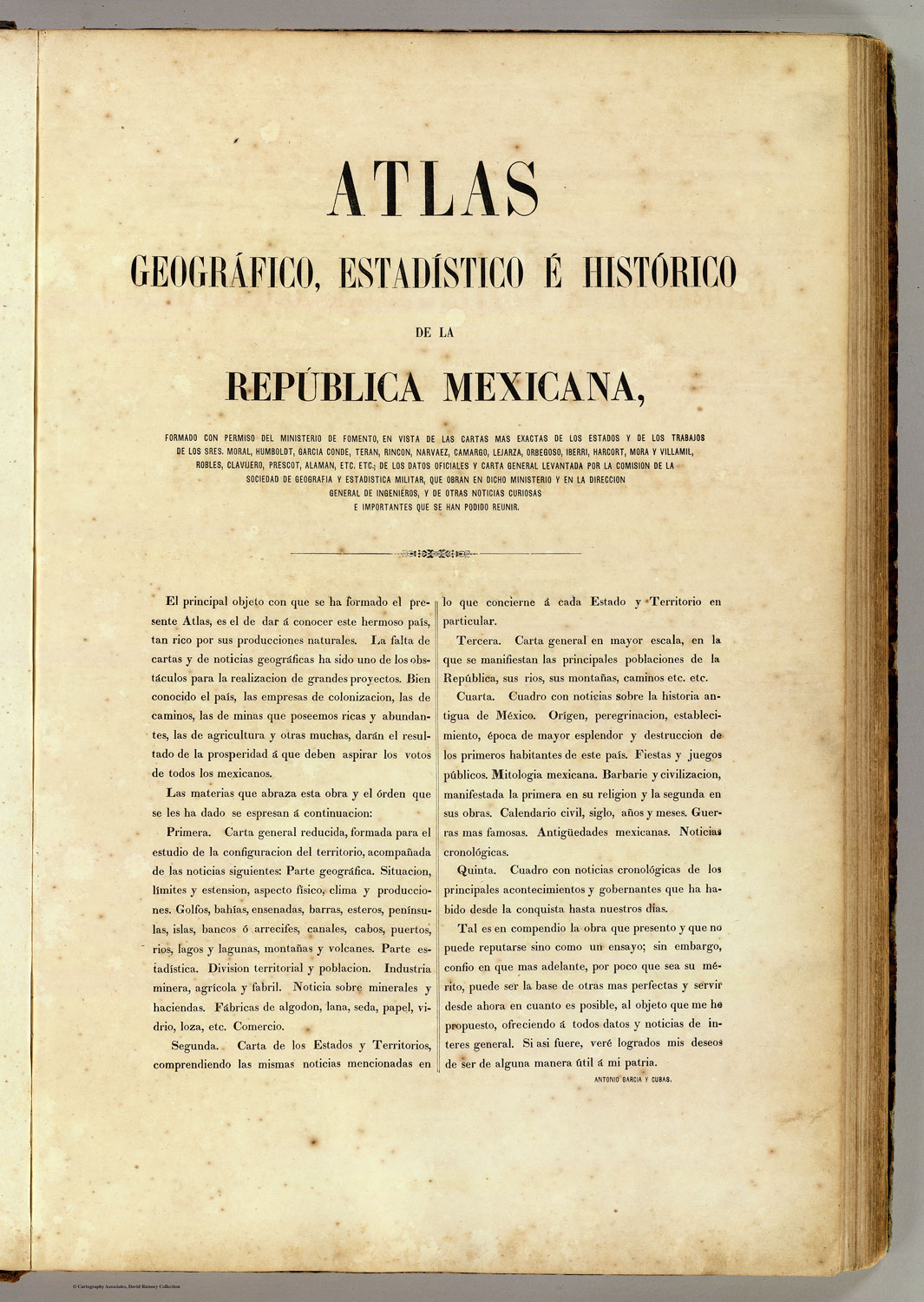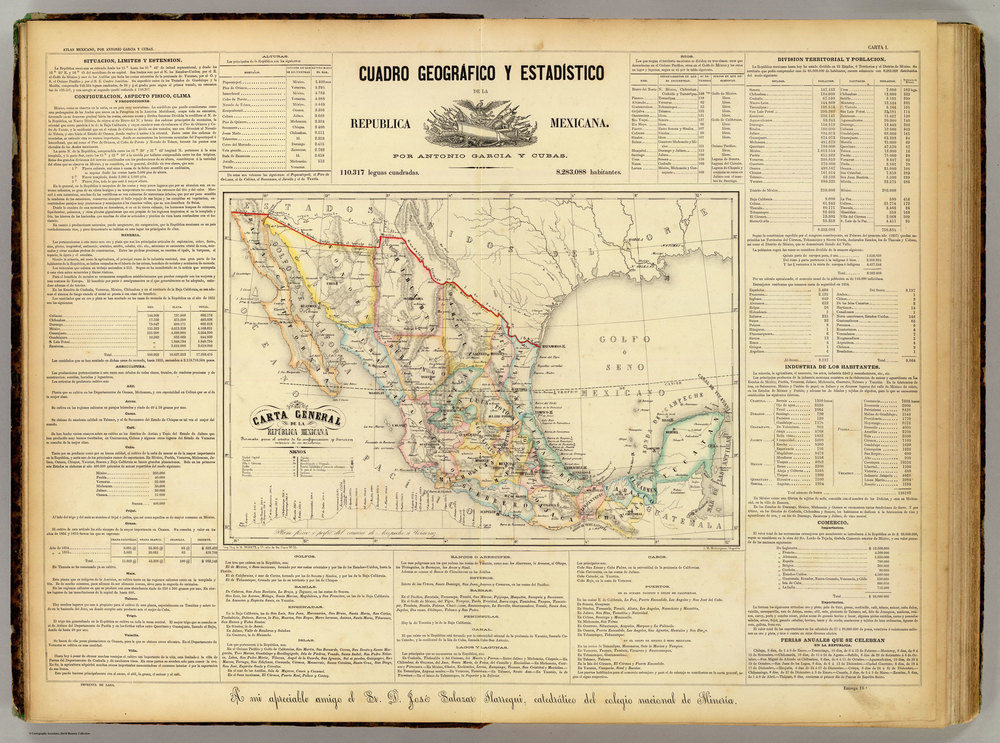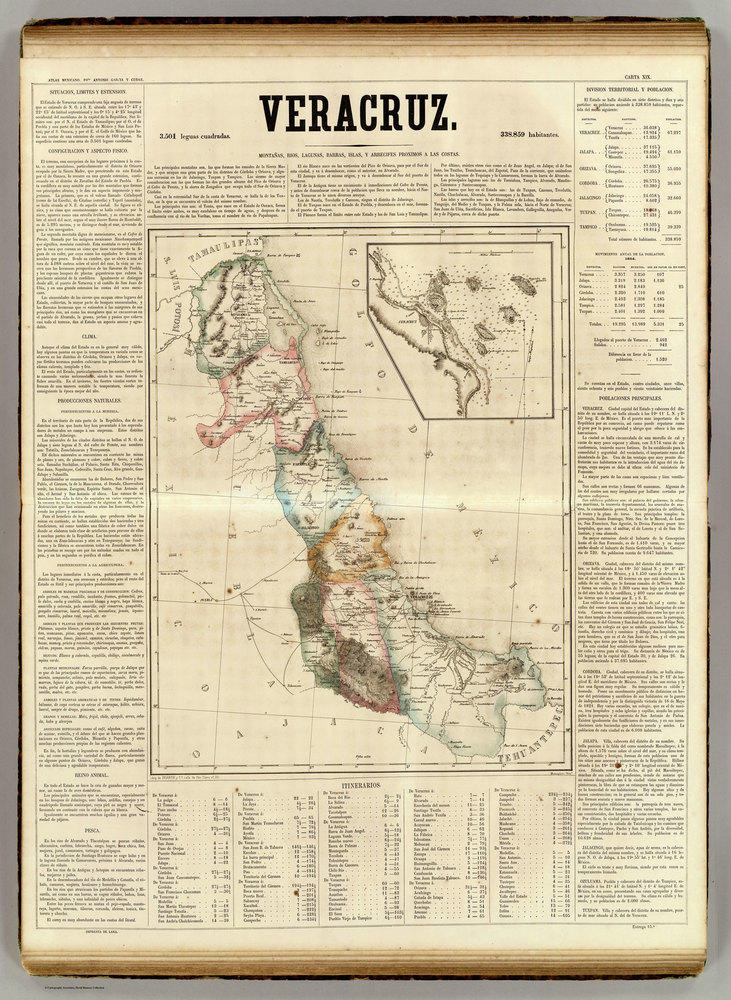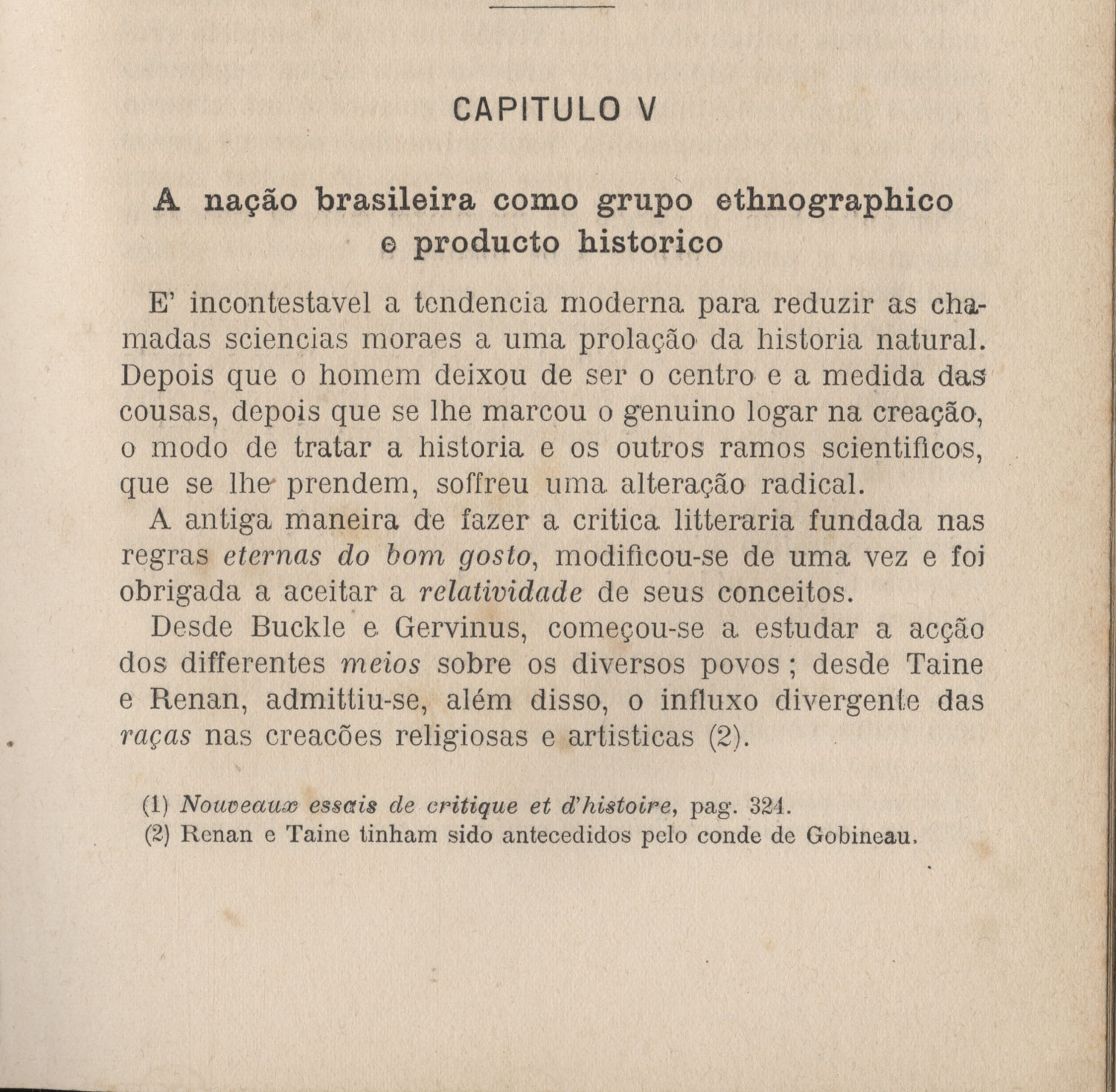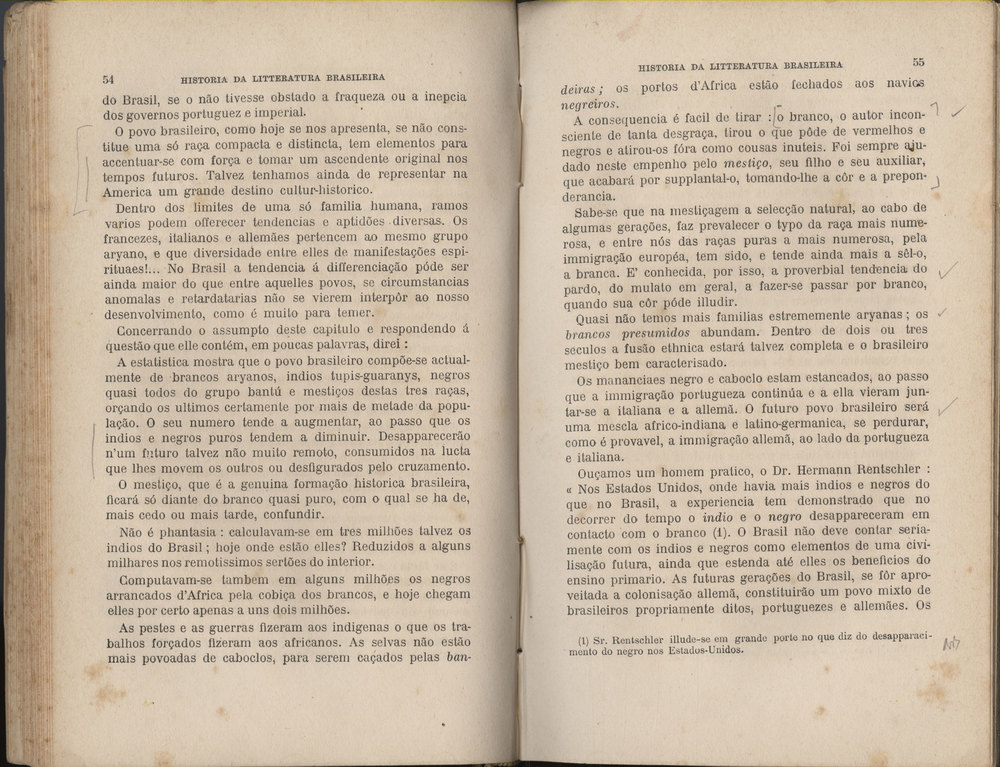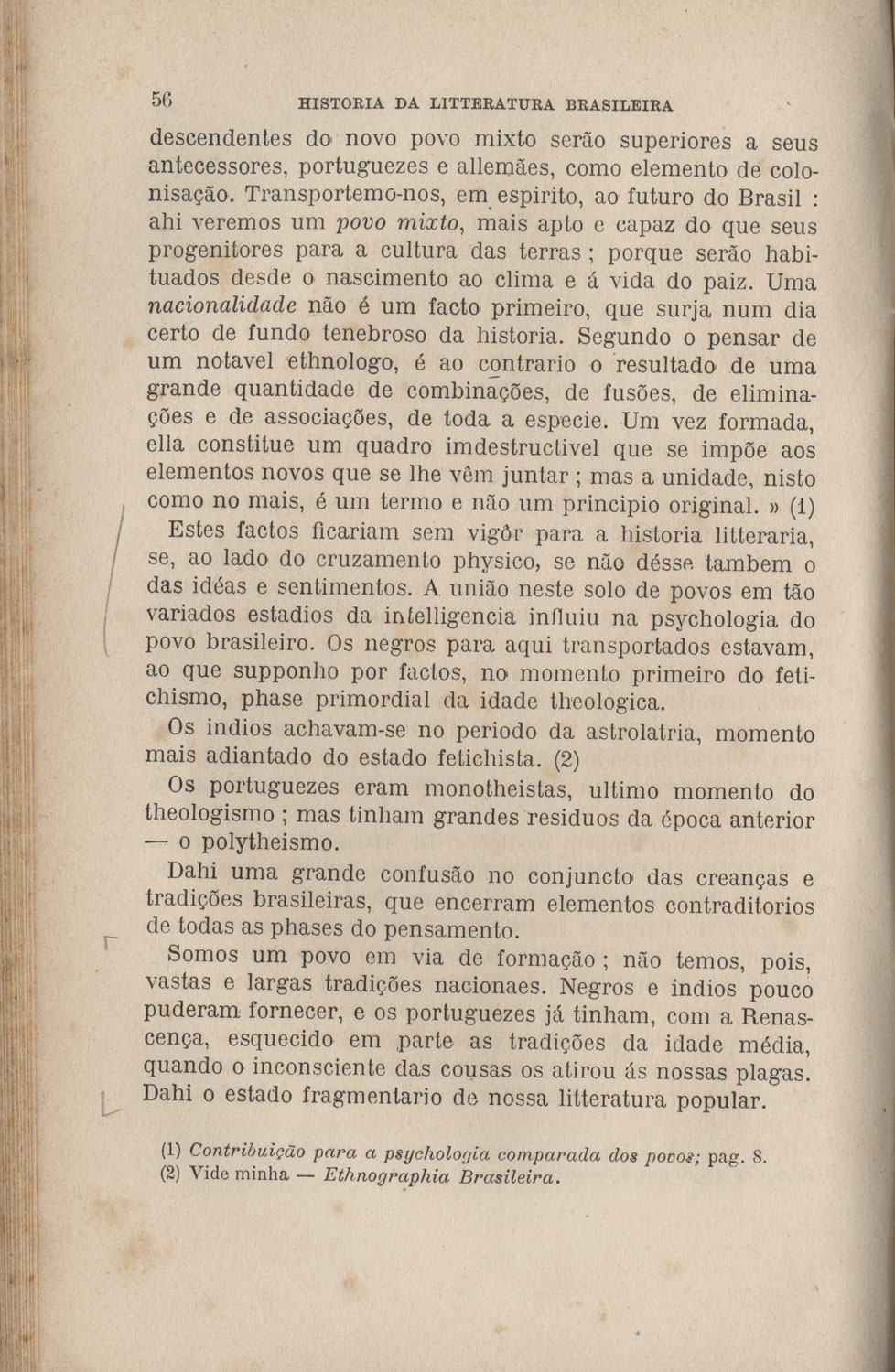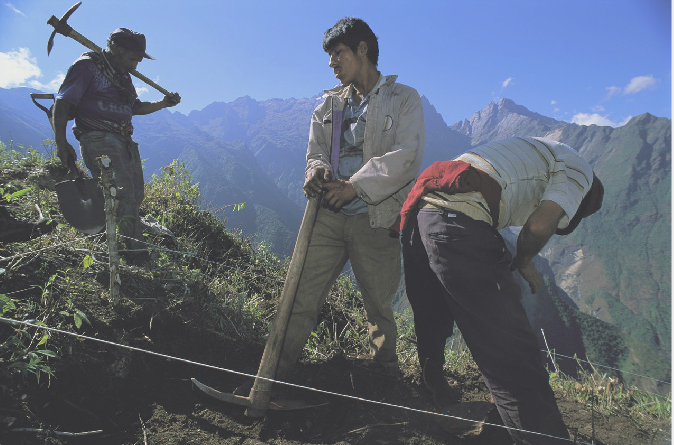Since the mid nineteenth century, social scientists have attempted to use scientific methodology to discover empirically-derived truths about the human world. Demography, economics, geography, sociology, anthropology, archaeology, and psychology are just some of the disciplines that seek to elucidate various aspects of the human world. There is no way that the history of each of these fields in Latin America can be explored in depth in this topic, but touching on case studies within each of these fields will help to draw out some of the most important themes in the Latin American social sciences on the whole.
There were some early attempts at conducting basic social science work in Latin America, such as the Relaciones Geograficas surveys and ethnographic studies, but the social sciences really emerged as important and legitimate pursuits in Latin America concurrently with the mid nineteenth century rise of positivism. Positivism identified advancing scientific knowledge with social progress. The positivist idea that controlled research could lead to factual knowledge was incredibly influential in Latin America during this time and reformers, politicians, and professionals were all eager to apply positivist science to better understand, control, or modernize their own societies.
The social sciences were deeply intermeshed with many of the "harder" sciences that have been most pervasive in Latin America over the last 150 years. A brief look at the topics covered in this website serves to give some sense of just how prevalent they were. Anthropology and sociology were instrumental to eugenics, medicine, criminology, and paleontology. An incomplete list of the topics that were dependent of economics would include agriculture, botany, the "advances" made in slavery, the useful arts of the Enlightenment, the Panama Canal, and the Pan American scientific collaborations. Geography, of course, was essential to cartography and exploration but it was also fundamental to how botanists and other natural scientists organized raw nature into national units and how proponents of tropical medicine were able to dismiss Latin American peoples as inherently inferior based on where they lived.
Recognizing their importance, Latin American (and other) governments employed the social sciences as a "scientific" means of knowing, shaping, and controlling society at a national level. Such measures were most often applied to studying society's "problems," many of which concerned modernizing Latin America. For many modernizers, race and social deviance were considered the largest (and often overlapping) challenges facing Latin America and reformers both within and outside the government began applying anthropology and sociology to study these "problems." Although these Latin American social scientists did co-opt many of their ideas from Europe, they often altered European theories to fit local circumstances. For example, social evolutionism--the idea that societies evolved like species and should be controlled to ensure that the "right" people thrive--lost much (but by no means all) of the racism inherent in its European version when anthropologists, especially in Mexico and Brazil, altered this theory to fit the local reality of racial mixing mestizaje (Horcasitas 2002; Eakin 1985). Similarly, social scientists began to examine the psychological and social roots of crime and other forms of undesirable social deviance like homosexuality and irregular female reproduction. Their studies fostered the professionalization of criminology while giving legitimacy to government efforts to regulate immigration, marriage, the insane, and family values (Rodriguez 2006).
Yet Latin American variants of social science were not just the tools of governments and other power groups; they have been used to create local knowledge structures that run counter to that which is forced on the region by foreign scientific powers. They did so by careful considerations of local circumstances, not merely replicating "universal" standards used in more scientifically advanced regions. The Economic Commission for Latin America, for example, created a program for industrial growth based on the history and culture of Latin America, not the economic schemes that had proven successful in Europe and the U.S. (Montecinos and Markoff 2001). In archaeology, early twentieth century anthropologists and paleontologists like Florentino Ameghino (see the Paleontology topic) used local fossil evidence to argue that all humans descended from a Patagonian ancestor and late twentieth century theorists developed the school of social archaeology, an approach to studying ancient societies that was intended to help empower present day indigenous groups.
In other cases, however, social scientists imposed universal (non-local) knowledge on peoples both within and outside of their own countries. Mexican geographers used land surveys and maps, like the atlas seen in the sources, to coerce indigenous peoples into seeing Mexico's geography in the "standard" way. About 100 years later, U.S. demographers and sociologists travelled en masse to Puerto Rico to do studies of population demographics that legitimized preexisting fears of third world population growth and encouraged the implementation of eugenic policies (Craib 2004; Briggs 2002).
No scientific study can be purely objective; the choice of focus, the way of conducting experiments, and how data is interpreted are all contingent upon external factors, most pronounced of which is power. While this truism is applicable to even the pure sciences, it is especially telling in social sciences where personal biases like racism, sexism, xenophobia, and national pride are borne out in ways that directly impact a society. To cite just one example, the supposedly empirical studies of Argentine sociologists, backed by the dual authorities of governmental support and positivistic legitimacy, led to very real and dire consequences for immigrants labeled as anarchists or women labeled as sexual deviants (Rodriguez 2006).
Taken together, economics, demography, geography, anthropology, sociology, criminology and the other social sciences had a massive impact on Latin America since the mid nineteenth century. Social science studies have shaped how people both within and outside of the region understand the (geographical construct known as) Latin America, creating knowledge that has molded the opinions of politicians and plebeians alike. Economic choices have dictated whether millions of people will eat or starve; anthropological ideas have constructed common assumptions about race, class, and gender; geographers have literally given shape to previously amorphous nation states; and psychologists have decided how normal people should think and behave. Taking a step back from Latin American history over the last 150 years, it is difficult to find anything that was not deeply affected by social science or social scientists.
Questions for further exploration:
- Did prominent Latin American social scientists have a larger influence on their societies than prominent practitioners of the hard sciences? Look at specific social scientists like Gamio, Ingenieros (both seen in the sources), or any of the others and compare their impact with that of other scientists or naturalists, such as Oviedo, Houssay, Borlaug, Pittier, Ameghino, Humboldt, and Darwin, to name a few. Use as many or as few examples as necessary to prove your argument.
- How did anthropology and sociology shape Latin American and Caribbean criminology? How did this affect perceptions of crime and criminals?
- Latin American social sciences were very often associated with the idea of fomento, development, that inspired many politicians, reformers, and modernizers throughout the independence era. Consider any one case from the sources or beyond (there are many additional examples) in which a social science was applied to encourage development (in the broad sense of the word). Why was that particular social science chosen to achieve that goal? How did local conditions or culture shape the way in which that social science was done? Did it succeed?
- Race, gender, and class are all socio-cultural constructs that, in the last 150 years, have been very influenced by the social sciences. Consider one of these three constructs and describe how one or more social sciences helped to form it. You can focus on a particular country or on Latin America and/or the Caribbean as a whole.
- Have Latin American social sciences resisted U.S. intellectual dominance better, worse, or the same as the harder sciences? Is resisting the influence of a dominant scientific power necessarily a good (or bad) thing? Support your arguments with evidence from this and other topics.
Further Reading:
Benavides, O. Hugo. "Returning to the Source: Social Archaeology as Latin American Philosophy." Latin American Antiquity. 12: 4 (December 2001): 355-370.
Biglaiser, Glen. Guardians of the Nation? Economists, Generals, and Economic Reform in Latin America. Notre Dame, Indiana: University of Notre Dame Press, 2002.
Briggs, Laura. Reproducing Empire: Race, Sex, Science, and U.S. Imperialism in Puerto Rico. Berkeley: University of California Press, 2002.
Bronfman, Alejandra. Measures of Equality: Social Science, Citizenship, and Race in Cuba. Chapel Hill: University of North Carolina Press, 2004.
Centeno, Miguel Angel and Fernando Lopes-Alves, eds. The Other Mirror: Gran Theory Through the Lens of Latin America. Princeton: Princeton University Press, 2001.
Craib, Raymond G. Cartographic Mexico: A History of State Fixations and Fugitive Landscapes. Durham: Duke University Press, 2004.
Diegues Jr., Manuel and Bryce Wood, eds. Social Science in Latin America. New York: Columbia University Press, 1967.
Eakin, Marshall C. "Race and Identity: Silvio Romero, Science, and Social Thought in Late 19th Century Brazil." Luso-Brazilian Review. 22: 2 (Winter 1985): 151-174.
Gonzalez, Horacio, Ed. Historia Critica de la Sociologia Argentina: los Raros, los Cientificos, los Discrepantes. Buenos Aires: Ediciones Colihue, 2000.
Horcasitas, Beatriz. "Las ciencias sociales en la encrucijada del poder: Manuel Gamio (1920-1940)." Revista Mexicana de Sociologia. 64: 3 (July-September 2002): 93-121.
Rodriguez, Julia. Civilizing Argentina: Science, Medicine, and the Modern State. Chapel Hill: The University of North Carolina Press, 2006.

